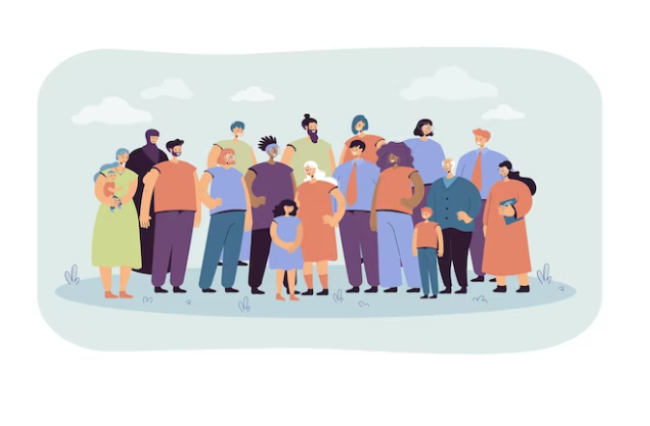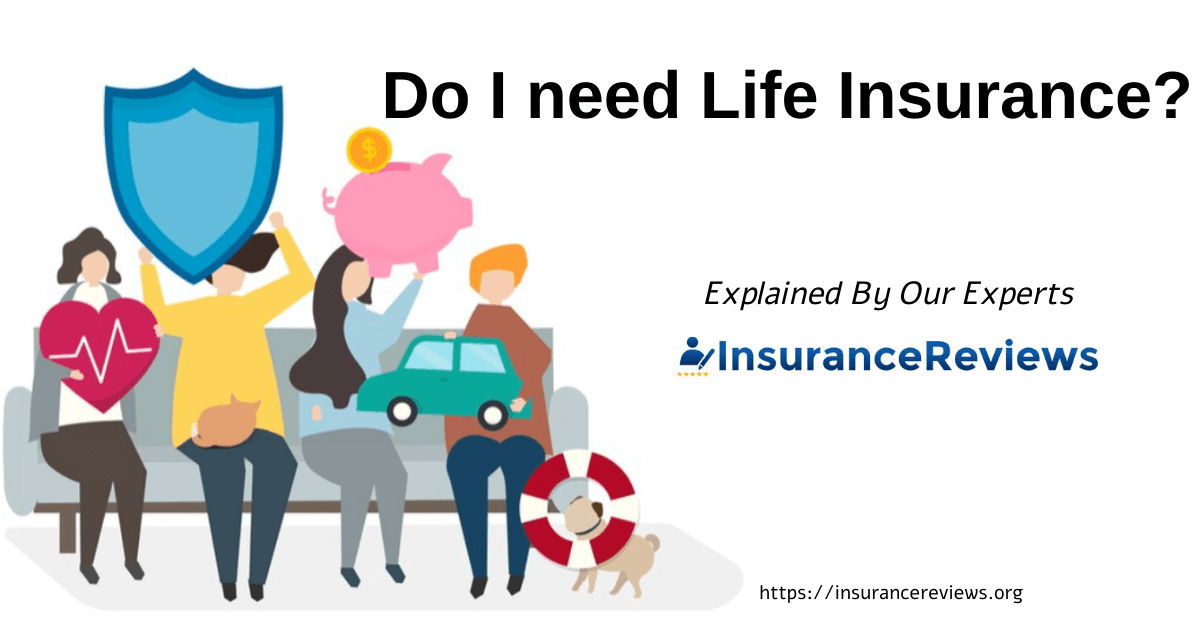If you’re in the position of considering buying life insurance and have asked yourself “do I need life insurance?” time and time again, somehow you understand the implications of investing in your loved ones’ future. If you’re the main breadwinner in your family, life insurance holds importance to protect them financially at the time of your untimely passing.
With a life insurance policy in place, your family could have no problems keeping up with expenses and will be able to maintain their current lifestyle – even if you’re no longer there to provide for them.
To help you understand more about life insurance, we have broken down the most basic terms that could help you decide which life insurance policy will work best for you.
Key Takeaways 💡
- Many primary breadwinners are keen to prepare themselves financially to support their family in times of need.
- Policy holders believe that life insurance is important to cover income loss in times of crises.
- Buying life insurance also helps immensely with funeral and other final expenses.
- Life insurance can cover mortgage costs
- Breadwinners see life insurance as an excellent means of providing coverage for health, education, and other household costs in case they’re gone.
Why Should I Buy Life Insurance?

Investing in life insurance is a smart decision that can provide important financial security for you and your loved ones.
Life insurance can be a useful tool for estate planning, helping to cover estate taxes and ensure that your assets are distributed according to your wishes.
If you have dependents who rely on your income to cover their expenses, life insurance can do exactly that and give you peace of mind by ensuring that they will be financially stable even if you are no longer able to provide for them.
Income Replacement
Income replacement is a common feature of life insurance policies in the provision of financial support to beneficiaries in the event of the policyholder’s death.
Income replacement coverage in life insurance policies typically provides a lump sum payment to the policy’s beneficiaries to replace the policyholder’s lost income.
Many life insurance policies offer income replacement riders, which can be added to a policy to increase the amount of income replacement coverage provided.
Income replacement coverage can be especially important to families who rely on the policyholder’s income to meet their daily living expenses.
Peace of Mind
If you’ve been wondering “do I need life insurance?”—peace of mind is a key benefit of life insurance: it gives reassurance that loved ones will be financially protected in the event of unexpected death.
With life insurance, policyholders can be confident that their beneficiaries will have the resources to cover expenses such as funeral costs, debts, and ongoing living expenses.
With this in mind, life insurance has a wide range of policies and getting the right one can help ensure that individuals have peace of mind knowing that their loved ones will be taken care of, regardless of what happens in the future.
Cash Value Increase
An increase in cash value is also a well-known feature of permanent life insurance policies, such as whole life insurance and universal life insurance.
These policies have higher premiums than term life insurance policies, but offer the benefit of building cash value over time.
With cash value, your premiums increase takes effect when the premiums paid into the policy exceed the insurance cost, and the excess funds are invested by the insurance company on behalf of the policyholder.
Policyholders can access their cash value through policy loans, withdrawals, or surrenderingthe policy altogether.
Cash value increase can act as an additional source of funds for retirement, emergencies, or other financial goals, but it’s important to consider the potential tax implications and fees associated with accessing the cash value of a life insurance policy.
Tax-free
Do I need life insurance and is it tax-free?
Life insurance policies that offer tax-free benefits allow the policyholder to receive the death benefit or cash value without paying taxes on the money received.
The tax-free status of life insurance policies is due to the fact that the death benefit and cash value are considered a return of premiums paid, rather than income.
If a life insurance policy is surrendered for its cash value, the policyholder can receive the money tax-free, up to the amount of the premiums paid.
Policyholders enjoy tax-free benefits of life insurance to provide financial security to their family, or to supplement their retirement income.
In some cases, life insurance policies can also be used as a tax-advantaged way to pass wealth to future generations, as the death benefit is usually paid out to beneficiaries without being subject to estate taxes.
Who Should Buy Life Insurance

- Anyone who has dependents or loved ones who rely on their income should consider purchasing life insurance.
- Individuals with high levels of debt or financial obligations may want to purchase life insurance to ensure that their debts can be paid off in the event of their death.
- Business owners who have partners or key employees may want to purchase life insurance as a way to protect the business and ensure continuity in the event of an owner or employee’s death.
- Individuals who want to leave a legacy or make a charitable donation may purchase life insurance with the intention of leaving a tax-free benefit to a charity or loved one.
Mortgage Holders
Apparently, many people are lax when it comes to making payments and do not have much knowledge in life insurance–the question “do I need life insurance?” May cross their mind and when it does they soon realize its many benefits, as it may help with the continuity of their mortgage payments.
Mortgage holders may choose to buy life insurance as a way to protect their loved ones in the event of their untimely death.
Life insurance can help pay off the outstanding mortgage balance and prevent the policyholder’s family from losing their home.
The amount of life insurance coverage needed may depend on the size of the mortgage and the number of dependents the lender has.
Parents of Young Children
Parents of young children often buy life insurance to provide financial protection for their family in case of unexpected death.
Life insurance can also help cover expenses such as mortgage payments, childcare costs, and education expenses.
Dependent Spouse or Family Members
An individual with a dependent spouse or family member might want to consider purchasing life insurance to protect their family’s financial well-being in the event of their death.
Life insurance can provide a source of income to help cover expenses such as mortgage payments, living expenses, and educational costs.
By purchasing life insurance, spouses or dependent family members can ensure that they are not left financially vulnerable or struggling to make ends meet.
Sole Income Earners
“Do I need life insurance?’
If you are a sole income earner, then the answer is yes.
As a sole income earner, you are likely the primary financial provider for your family, making life insurance an important consideration.
Life insurance will provide financial stability to your loved ones in the event of your unexpected death, helping them keep up with expenses and maintain the standard of living they have grown accustomed to.
Without a second income to fall back on, the loss of a sole income earner can create significant financial strain for a family.
Business Owners
Business owners often buy life insurance to protect their business and their loved ones in case of their unexpected death.
Life insurance can provide financial stability and security for a business, as it can be used to cover debts, expenses, and employee benefits.
Some business owners also purchase life insurance to facilitate business succession planning, ensuring a smooth transition of ownership and control in case of their passing.
Others

While the people mentioned above are the main life insurance purchasers, there are others who do so as well, along with the following reasons:
-Those who have debt
People who have debt may consider buying life insurance to protect their loved ones in the event of their unexpected death.
Life insurance can provide a lump sum payment to the policy beneficiary, which can be used to pay off any outstanding debts.
Some lenders or creditors may require borrowers to purchase life insurance as a condition of receiving a loan or credit.
-Stay at home parents or spouses
Stay at home parents or spouses should consider purchasing life insurance to provide financial security for their family in case of their unexpected death.
Even though stay at home parents or spouses may not have a traditional salary, their contributions to the household still have significant monetary value.
-Those who want to cover funeral and end-of-life costs
Life insurance is a popular way for people to financially prepare for end-of-life expenses, such as funeral and burial costs.
By purchasing a life insurance policy, individuals can ensure that their loved ones will not be burdened with these expenses after their passing.
Life insurance policies can be tailored to specific end-of-life needs, such as covering funeral costs or providing a lump sum for other expenses.
What Should I Consider Before Buying Life Insurance
As many policyholders know, life insurance is an important long-term financial investment that can, in turn, give financial protection for your loved ones in the event of your passing.
Before buying life insurance, take some time to consider the following:
- Evaluate your financial situation first.
- Consider the amount of coverage you need to adequately protect your family.
- Know and understand that your age, gender, lifestyle, and other factors may directly impact your life insurance coverage premiums.
- If you have children, factors such as tuition, hospitalization, and other expenses should be taken into consideration .
- If you’re an employee, being insured at work is very important and can be your pillar of support in case of accidents.
It’s important to understand the different types of life insurance policies available, such as term life insurance and whole life insurance, and the benefits and drawbacks of each.
Who Doesn’t Need Life Insurance?

There are people who don’t need life insurance—it may be that they have sufficient personal wealth and assets to provide for their loved ones in case of their unexpected death.
They may also believe that life insurance is an unnecessary expense and prefer to allocate their resources towards other financial goals.
Listed below are the most common individuals who deem life insurance as unnecessary:
- People who have no dependents or financial obligations may not need life insurance.
- Young adults who have no children or significant debt may not require life insurance.
- Individuals who have accumulated enough wealth to self-insure their financial obligations may not need life insurance.
- Retired individuals who no longer have dependents or significant financial obligations may not require life insurance.
Conclusion
The need for life insurance depends on your individual circumstances and financial goals.
If you have dependents who rely on your income, a life insurance policy can provide financial security in the event of your unexpected death.
It can also be useful if you have outstanding debts or a mortgage that would be difficult to pay off without your income. On the other hand, if you have no dependents and sufficient assets to cover your debts and funeral expenses, you may not need life insurance.
It’s noteworthy to assess your situation and consider your financial goals before deciding whether or not to purchase life insurance.
If you don’t have life insurance and you pass away, your loved ones may face financial hardship as they try to cover the costs of your final expenses, outstanding debts, and ongoing living expenses.
Without life insurance, your dependents may struggle to pay important payments like mortgage or rent, utilities, food, education, and other payments for their basic needs.
If you have children, your death could have a significant impact on their future plans and opportunities, as they may need to adjust their goals or take on additional responsibilities to help support the family.
As you age, the cost of life insurance may become expensive, so it’s important to consider purchasing coverage while you’re young and healthy to ensure you have the protection you need
The death benefit varies depending on the type of insurance policy and the coverage amount selected by the policyholder. It can be about a few thousand dollars to millions of dollars.
Term life insurance policies are generally more affordable than permanent life insurance policies because they provide coverage for a specific period of time.
As a single person, you may not have dependents who rely on your income, so life insurance may not be a top priority.
However, there may still be certain reasons why you may want to consider getting life insurance, such as to cover your final expenses or to leave a legacy for your loved ones.
Buying life insurance can be complicated, but it doesn’t have to be.
The level of complexity involved in buying life insurance depends on your unique situation and needs.
Working with a knowledgeable insurance agent or doing your own research can help simplify the process of buying life insurance.
Cash value refers to the savings component of a permanent life insurance policy, while the death benefit is the amount of money that will be paid out to the policy’s beneficiaries upon the insured person’s death.
FAQ
What happens if I don’t have life insurance?
- If you don’t have life insurance and you pass away, your loved ones may face financial hardship as they try to cover the costs of your final expenses, outstanding debts, and ongoing living expenses.
- Without life insurance, your dependents may struggle to pay important payments like mortgage or rent, utilities, food, education, and other payments for their basic needs.
- If you have children, your death could have a significant impact on their future plans and opportunities, as they may need to adjust their goals or take on additional responsibilities to help support the family.
- As you age, the cost of life insurance may become expensive, so it’s important to consider purchasing coverage while you’re young and healthy to ensure you have the protection you need.
How much is the death benefit?
The death benefit varies depending on the type of insurance policy and the coverage amount selected by the policyholder. It can be about a few thousand dollars to millions of dollars.
Which life insurance policy is most affordable?
Term life insurance policies are generally more affordable than permanent life insurance policies because they provide coverage for a specific period of time.
Do I need life insurance if I’m single?
As a single person, you may not have dependents who rely on your income, so life insurance may not be a top priority.
However, there may still be certain reasons why you may want to consider getting life insurance, such as to cover your final expenses or to leave a legacy for your loved ones.
Is buying life insurance complicated?
Buying life insurance can be complicated, but it doesn’t have to be.
The level of complexity involved in buying life insurance depends on your unique situation and needs.
Working with a knowledgeable insurance agent or doing your own research can help simplify the process of buying life insurance.
What’s the difference between cash value and death benefit?
Cash value refers to the savings component of a permanent life insurance policy, while the death benefit is the amount of money that will be paid out to the policy’s beneficiaries upon the insured person’s death.





